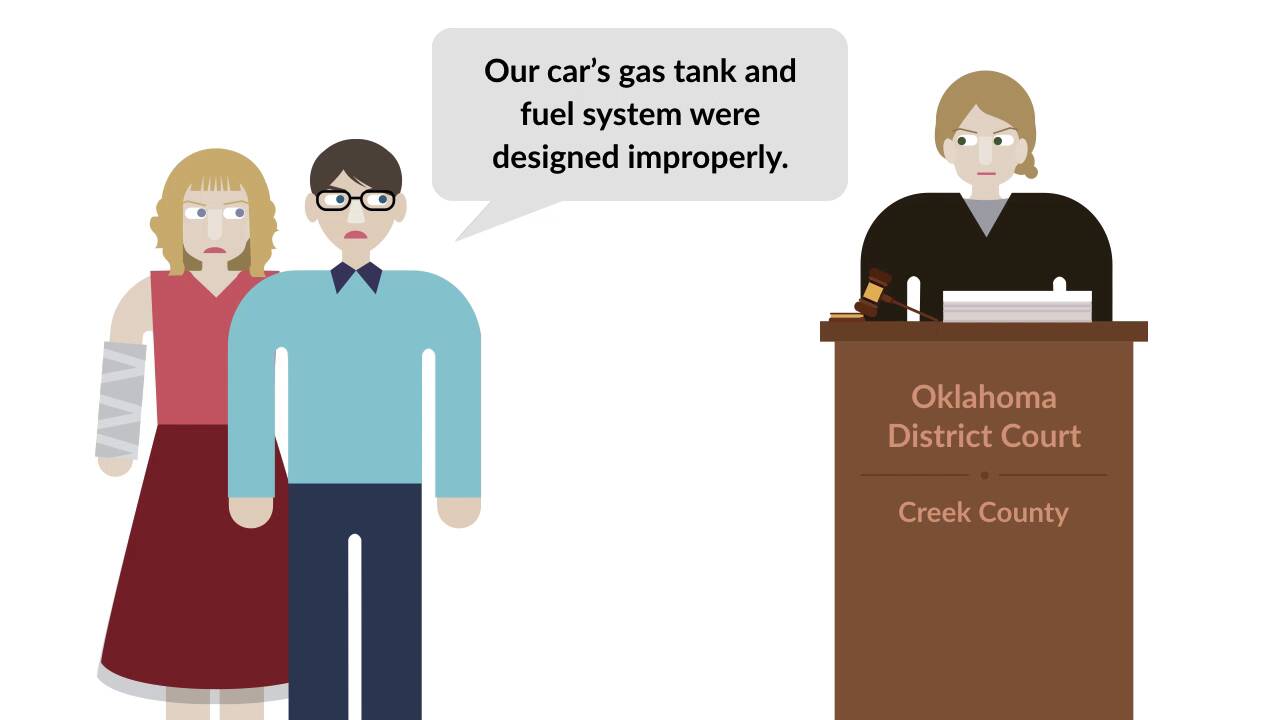World wide volkswagen corp v woodson case brief – In the annals of product liability law, World Wide Volkswagen Corp. v. Woodson stands as a pivotal case that has shaped the legal landscape for manufacturers and consumers alike. This brief explores the case’s significance, legal principles, and lasting impact on product safety and responsibility.
The case stemmed from a tragic accident involving a defective Volkswagen Rabbit, highlighting the crucial role of strict liability in holding manufacturers accountable for injuries caused by their products.
Case Overview

The World Wide Volkswagen Corp. v. Woodson case was a landmark product liability case that reached the Supreme Court of the United States in 1980. The case involved a woman named Sharon Woodson who was injured when the Volkswagen Beetle she was driving flipped over.
Woodson sued Volkswagen, alleging that the car’s design was defective and that Volkswagen was negligent in failing to warn consumers about the risk of rollovers.
The Supreme Court ruled in favor of Volkswagen, holding that the company was not liable for Woodson’s injuries. The Court found that Volkswagen had not been negligent and that the car’s design was not defective. The Court also held that Volkswagen was not required to warn consumers about the risk of rollovers because the risk was obvious.
The World Wide Volkswagen Corp. v. Woodson case is a significant case in product liability law. The case established the principle that manufacturers are not liable for injuries caused by obvious risks. The case also clarified the standard of care that manufacturers must meet in order to avoid liability for negligence.
Legal Analysis
The World Wide Volkswagen Corp. v. Woodson case was decided based on the legal principles of negligence, strict liability, and product liability. Negligence is a legal theory that holds that a person is liable for injuries caused by their failure to exercise reasonable care.
Strict liability is a legal theory that holds that a person is liable for injuries caused by their products, regardless of whether they were negligent. Product liability is a legal theory that holds that manufacturers are liable for injuries caused by their defective products.
In the World Wide Volkswagen Corp. v. Woodson case, the Court found that Volkswagen was not negligent because it had not breached any duty of care to Woodson. The Court also found that the car’s design was not defective because it met the industry standard for safety.
Finally, the Court found that Volkswagen was not required to warn consumers about the risk of rollovers because the risk was obvious.
The World Wide Volkswagen Corp. v. Woodson case has been cited as precedent in numerous other product liability cases. The case has also been used to support the argument that manufacturers should not be held liable for injuries caused by obvious risks.
Impact on Product Liability Law

The World Wide Volkswagen Corp. v. Woodson case has had a significant impact on product liability law. The case established the principle that manufacturers are not liable for injuries caused by obvious risks. The case also clarified the standard of care that manufacturers must meet in order to avoid liability for negligence.
The World Wide Volkswagen Corp. v. Woodson case has been used to support the argument that manufacturers should not be held liable for injuries caused by obvious risks. The case has also been cited as precedent in numerous other product liability cases.
The World Wide Volkswagen Corp. v. Woodson case is a landmark case in product liability law. The case has had a significant impact on the development of product liability law and continues to be cited as precedent in numerous other cases.
Case Study

A hypothetical scenario that illustrates the application of the legal principles established in the World Wide Volkswagen Corp. v. Woodson case is as follows:
A woman named Jane Doe is injured when the Toyota Camry she is driving flips over. Doe sues Toyota, alleging that the car’s design was defective and that Toyota was negligent in failing to warn consumers about the risk of rollovers.
The court would likely find that Toyota is not liable for Doe’s injuries based on the principles established in the World Wide Volkswagen Corp. v. Woodson case. The court would likely find that Toyota was not negligent because it had not breached any duty of care to Doe.
The court would also likely find that the car’s design was not defective because it met the industry standard for safety. Finally, the court would likely find that Toyota was not required to warn consumers about the risk of rollovers because the risk was obvious.
The following table summarizes the key facts of the hypothetical scenario and the relevant legal principles:
| Key Fact | Relevant Legal Principle |
|---|---|
| The car’s design met the industry standard for safety. | Manufacturers are not liable for injuries caused by products that meet the industry standard for safety. |
| The risk of rollovers was obvious. | Manufacturers are not required to warn consumers about obvious risks. |
Q&A: World Wide Volkswagen Corp V Woodson Case Brief
What is the significance of World Wide Volkswagen Corp. v. Woodson?
The case established the principle of strict liability in product liability cases, holding manufacturers liable for injuries caused by defective products regardless of fault.
How did the case impact product liability law?
The decision expanded the scope of manufacturers’ liability and imposed a duty on them to ensure the safety of their products.
What are the implications of the case for consumers?
The case strengthened consumer protections by making it easier for victims of defective products to seek compensation.